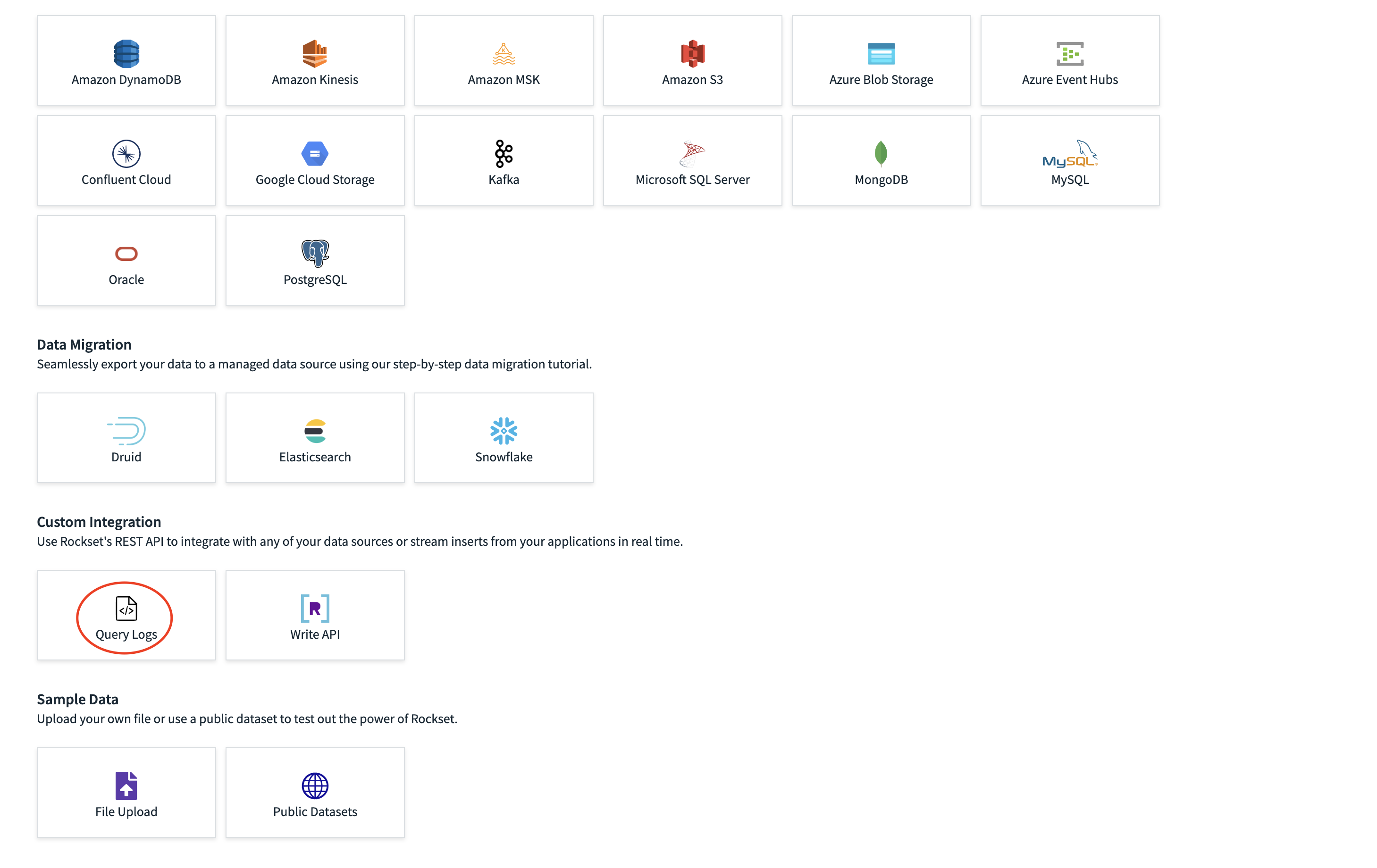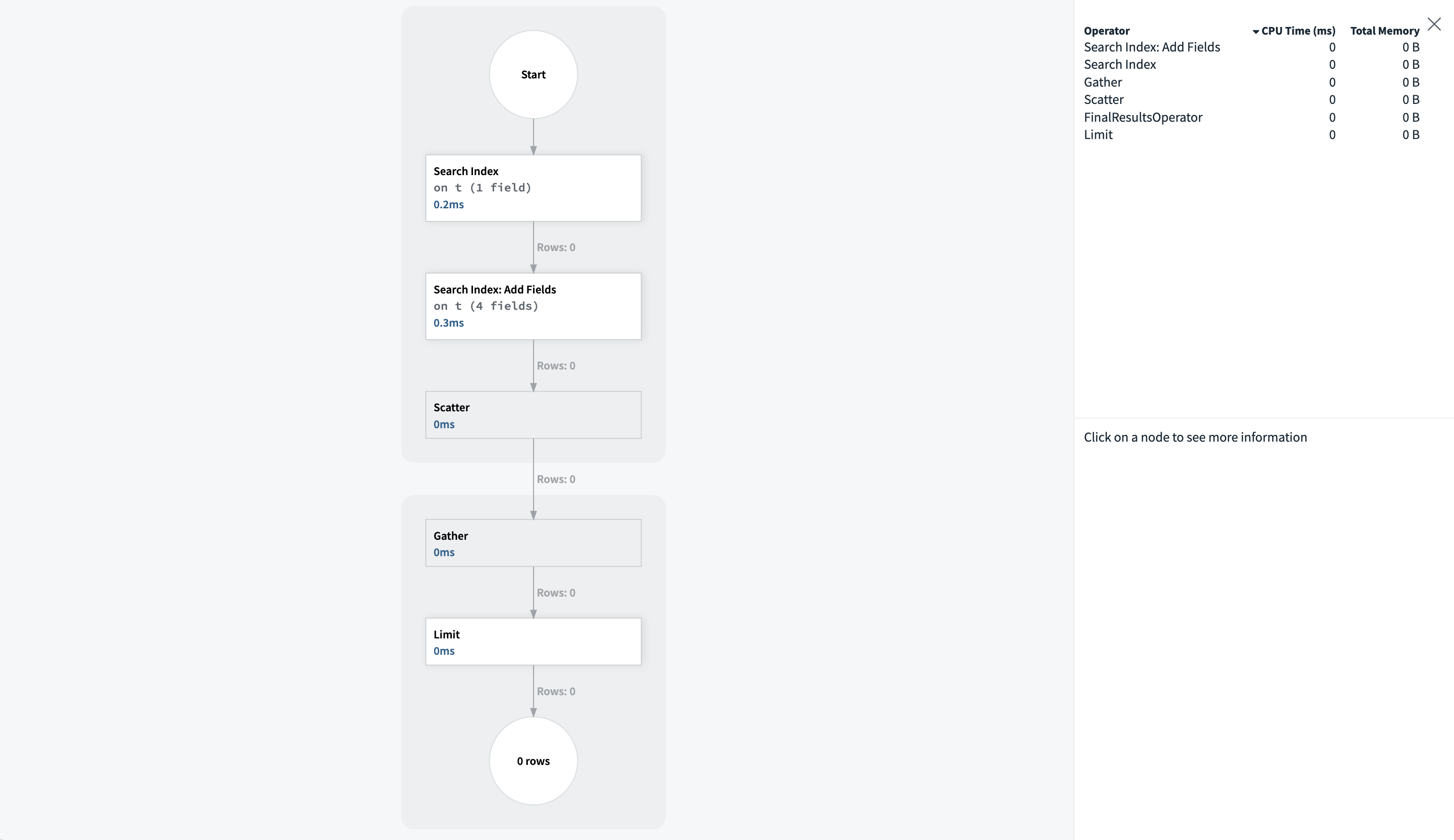At Rockset, we frequently search for methods to present our clients higher visibility into the product. Towards this objective, we just lately determined to enhance our customer-facing question logging. Our earlier iteration of question logs was based mostly in considered one of our shared providers referred to as apiserver. As a part of the work that apiserver would do when finishing a question execution request, it could create a log that will finally be ingested into the _events assortment. Nonetheless, there have been points that made us rethink this implementation of question logs:
- No isolation: as a result of the question logs in
_eventsrelied on shared providers, heavy visitors from one org may have an effect on question logging in different orgs. - Incomplete logs: due to the problems brought about through the use of shared providers, we solely logged question errors – profitable queries wouldn’t be logged. Moreover, it was not doable for us to log knowledge about async queries.
- No means to debug question efficiency – the question logs in
_eventssolely contained fundamental details about every question. There was no approach for the consumer to get details about why a given question could have run slowly or exhausted compaute assets for the reason that logs contained no details about the question plan.
Improved Question Logging
The brand new question logs function addresses all of those points. The mechanisms that deal with question logs are contained solely inside your Digital Occasion versus being inside considered one of Rockset’s shared providers. This offers question logs the benefit of isolation. Moreover, each question you submit will probably be routinely logged when you have already created a set with a question logs supply (offered you don’t hit a price restrict).
How Question Logs Work
Question logging begins on the finish of question execution. As a part of the steps which are run within the closing aggregator when a question has accomplished, a document containing metadata related together with your question is created. At this level, we might also have to gather data from different aggregators that had been concerned within the question. After that is executed, the document is quickly saved in an in-memory buffer. The contents of this buffer are flushed to S3 each few seconds. As soon as question logs have been dumped to S3, they are going to be ingested into any of your question log collections which have been created.

INFO vs DEBUG Logs
After we first designed this mission, we had all the time meant for it to work with the question profiler within the console. This is able to permit our clients to debug question bottlenecks with these logs. Nonetheless, the question profiler requires fairly a bit of knowledge, which means it could be inconceivable for each question log to include all the data needed for the profiler. To unravel this downside, we opted to create two tiers of question logs – INFO and DEBUG logs.
INFO logs are routinely created for each question issued by your org. They include some fundamental metadata related together with your question however can’t be used with the question profiler. When you realize that you could be need to have the flexibility to debug a sure question with the profiler, you may specify a DEBUG log threshold together with your question request. If the question execution time is bigger than the desired threshold, Rockset will create each an INFO and a DEBUG log. There are two methods of specifying a threshold:
-
Use the
debug_log_threshold_msquestion traceSELECT * FROM _events HINT(debug_log_threshold_ms=1000) - Use the
debug_threshold_msparameter in API requests. That is obtainable for each question and question lambda execution requests.
Notice that since DEBUG logs are a lot bigger than INFO logs, the speed restrict for DEBUG logs is far decrease. Because of this, it is suggested that you just solely present a DEBUG log threshold when you realize that this data may very well be helpful. In any other case, you run the chance of hitting the speed restrict while you most want a DEBUG log.
System Sources
As a part of this mission, we determined to introduce a brand new idea referred to as system sources. These are sources which ingest knowledge originating from Rockset. Nonetheless, not like the _events assortment, collections with system sources are managed solely by your group. This lets you configure the entire settings of those collections. We will probably be introducing extra system supply sorts as time goes on.
Getting Began with Question Logging
With a view to begin logging your queries, all it’s worthwhile to do is create a set with a question logs supply. This may be executed by means of the console.

Rockset will start ingesting question logs into this assortment as you submit queries. Logs for the final 24 hours of queries will even be ingested into this assortment. Please notice that it might probably take a couple of minutes after a question has accomplished earlier than the related log will present up in your assortment.
With a view to use the question profiler with these logs, open the Rockset Console’s question editor and situation a question that targets considered one of your question logs collections. The question editor will detect that you’re making an attempt to question a set with a question logs supply and a column referred to as ‘Profiler’ will probably be added to the question outcomes desk. Any paperwork which have a populated stats subject may have a hyperlink on this column. Clicking on this hyperlink will open the question profile in a brand new tab.


Notice that customized ingest transformations or question aliases can intervene with this performance so it is suggested that you don’t rename any columns.
For an intensive dive into utilizing Rockset’s Question Profiler, please consult with the video obtainable right here.
Conclusion
Hopefully, this has given you a fast look into the performance that question logs can provide. Whether or not it’s worthwhile to debug question efficiency or examine why beforehand accomplished queries have failed, your expertise with Rockset will probably be improved by making use of question logs.

